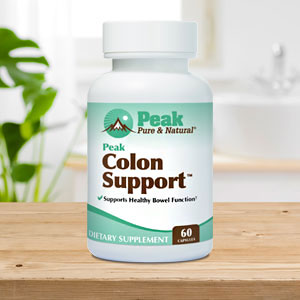Get Easy Health Digest™ in your inbox and don’t miss a thing when you subscribe today. Plus, get the free bonus report, Mother Nature’s Tips, Tricks and Remedies for Cholesterol, Blood Pressure & Blood Sugar as my way of saying welcome to the community!
Leaky gut syndrome: Fixing the leaks and your body

It may start in the gut, but leaky gut syndrome, as I discussed last week, affects numerous organs and systems throughout the body. With the immune system on constant alert and chronic inflammation setting fires in the gut, the body becomes vulnerable to allergies, autoimmune conditions and a number of other degenerative issues related to chronic inflammation. Without intervention, the problem usually gets worse.
For those facing leaky gut syndrome and the food sensitivities that fire it, the first step towards regaining good health is identifying the foods that are causing the problem and eliminating them.
The usual suspects
By now, we all know at least one person who has reduced or eliminated gluten from their diet. Gluten is a protein found in certain grains, such as wheat, rye and barley, and can generate significant inflammatory reactions and sensitivities. Dairy can also be problematic, as some people have trouble digesting the proteins in milk, cheese, etc. (However, it’s important to note that because it’s fermented, yogurt is an exception.)
Other common problem foods include:
- Chocolate
- Corn (including anything with high fructose corn syrup)
- Eggs
- Nuts
- Peppers
- Potatoes
- Shellfish
- Sugar and other sweetener
- Soy
Prescription drugs, alcohol and caffeine can also cause problems. Stress can be a contributing factor, as inflammatory stress hormones worsen any existing problem.
Eliminate trigger foods, eliminate symptoms
With so many different foods putting us at risk, figuring out which ones are damaging the gut can be tricky. There are a variety of lab tests that can help us figure out which foods are the culprits. But before you start performing labs, I recommend trying an elimination diet.
It’s a pretty simple process: First, eliminate all common suspect foods for 2-3 weeks and see whether those changes reduce symptoms. Keep in mind, your symptoms may worsen in the first few days of eliminating problem foods. Give yourself at least 2 weeks to reset your digestive system, emphasizing green vegetables, high fiber foods, soups and plenty of fluids to help flush things out. After 2-3 weeks, you can begin to add each suspect food back to your diet, one at a time every few days, and monitor your reactions. If your symptoms reappear, you know the most recently introduced food is likely causing the problem.
The healing process for leaky gut
Eliminating food(s) that your body finds problematic is an important start. But you still need to actively heal the gut. There are a number of supplements that can help.
Probiotic foods, such as yogurt, kefir and kimchee can help restore probiotic bacteria and keep your gut flora in balance. I also recommend foods that are high in omega-3s, such as salmon, chia and flax seeds. These can reduce overall inflammation. Bone broth from organic meats and grass fed beef is also a recommended adjunct for healing the digestive lining.
Digestive enzymes also support intestinal healing. Alpha-galactosidase, protease, amylase and lipase break down food and aid nutrient absorption. The mineral zinc is necessary to support immunity but it can also boost digestive health and may even decrease intestinal permeability. L glutamine is also an effective supplement that can help repair the digestive tract.
It’s important to restore digestive function and nutrient absorption, and also alleviate indigestion, constipation, nausea and discomfort.
Because food sensitivities trigger such vague symptoms, people often just learn to live with them. This is both unnecessary and dangerous. By making the effort to identify and eliminate problem foods, we can take a big step towards restoring digestive health and overall wellness.














